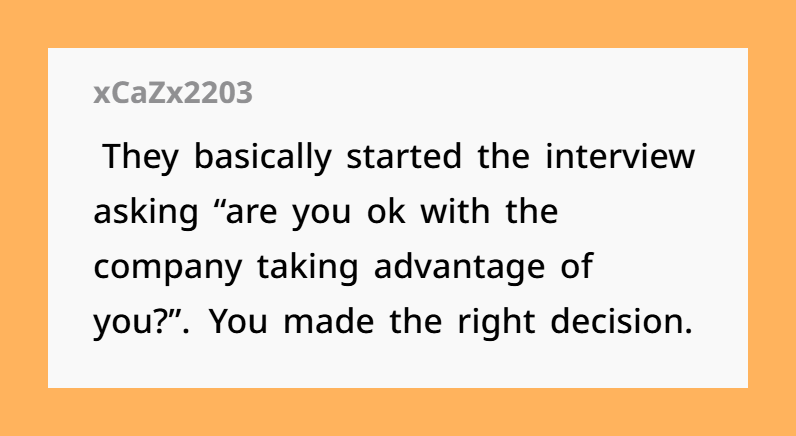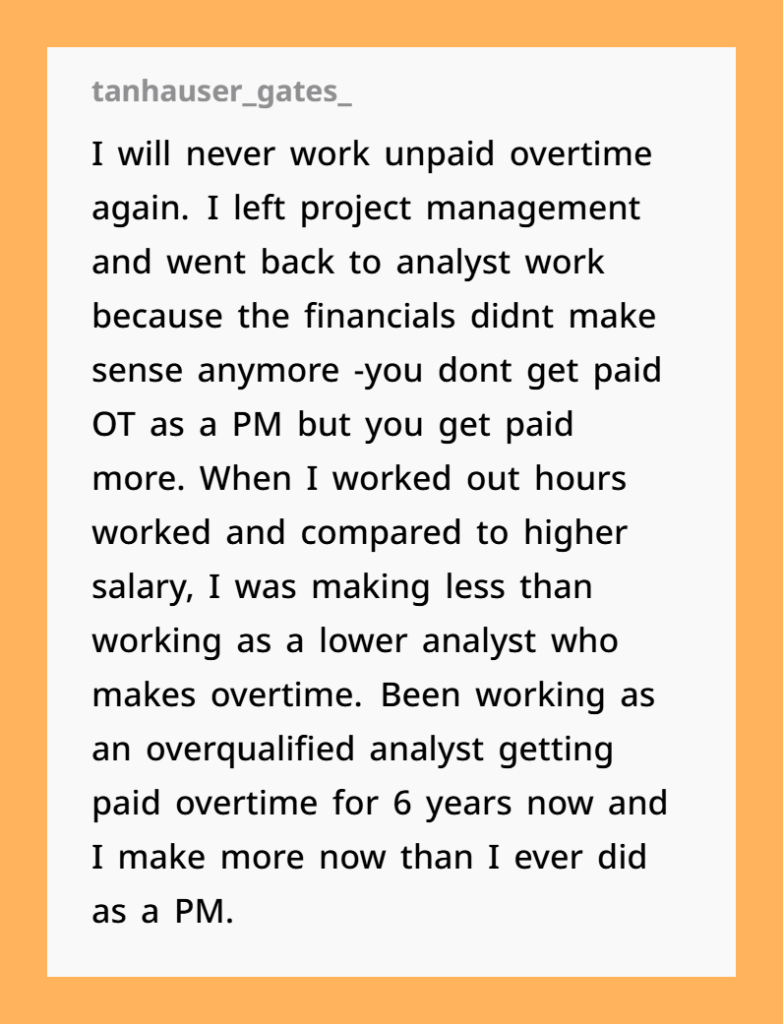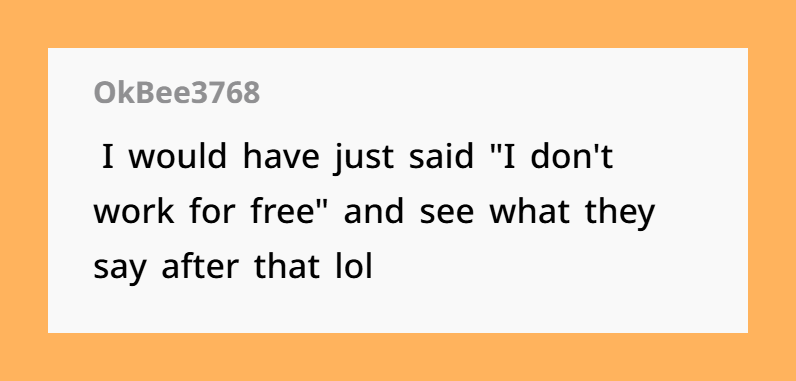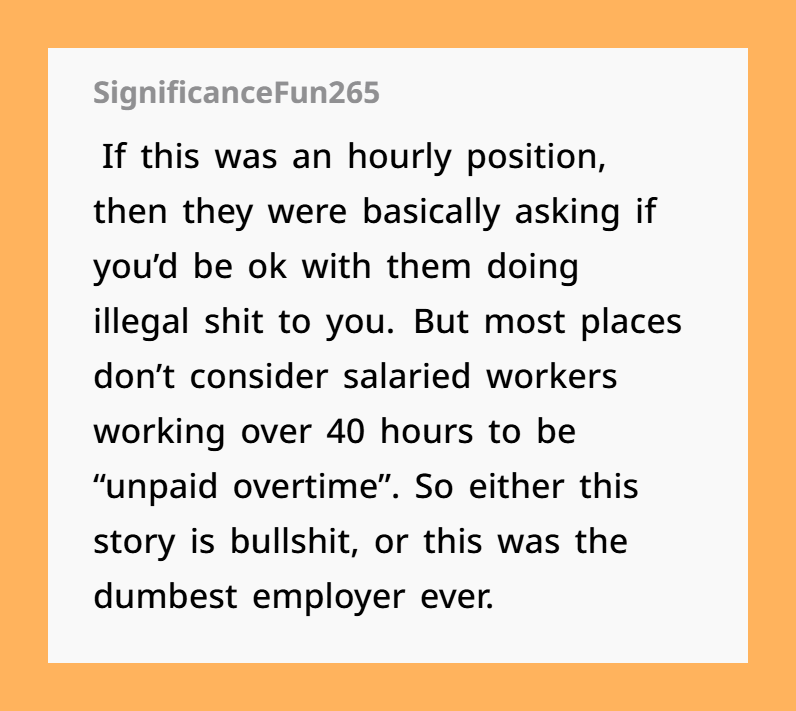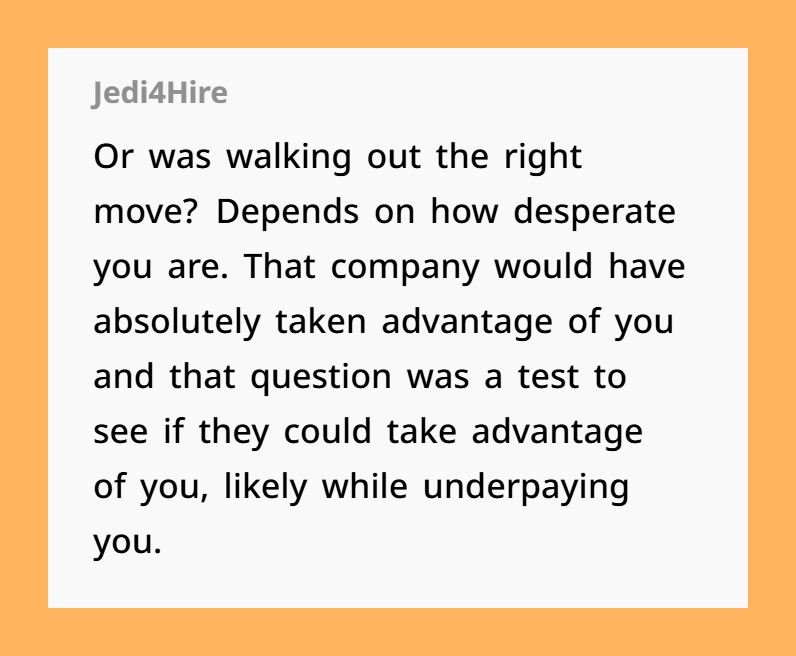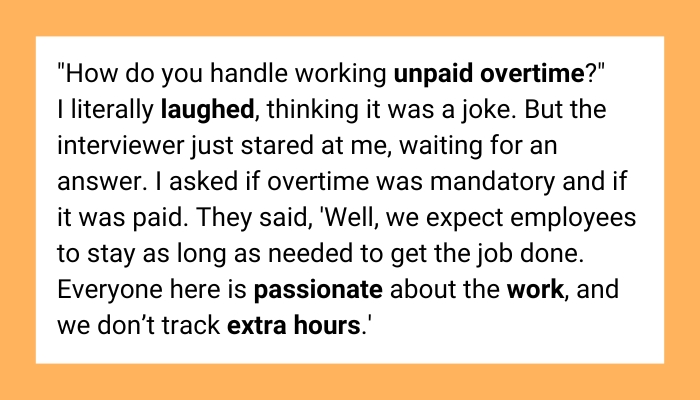“Walked Out After One Interview Question—Did I Overreact?”
The original poster (OP) recounts a bold decision made during a job interview that began with high hopes but quickly soured. After months of searching, they were excited about this opportunity—the company had solid reviews, the compensation looked fair, and the job description matched their aspirations. However, within minutes of sitting down, the first question sent up a red flag: “How do you handle working unpaid overtime?” OP initially laughed, assuming it was a joke, only to realize the interviewer was entirely serious. Upon confirming that overtime was both expected and unpaid, OP politely declined to proceed and exited the interview. Now, they’re questioning whether they were too hasty.
The Reddit community often applauds strong boundaries and workplace advocacy, but dilemmas like this strike a personal chord. Many job seekers face subtle pressure to normalize overwork under the guise of “passion” or “team spirit.” This story taps into a broader conversation about labor ethics, employee rights, and the growing pushback against exploitative work culture.
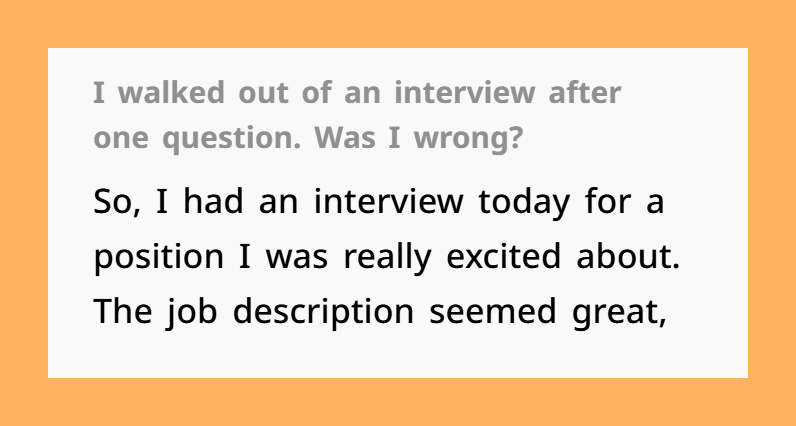
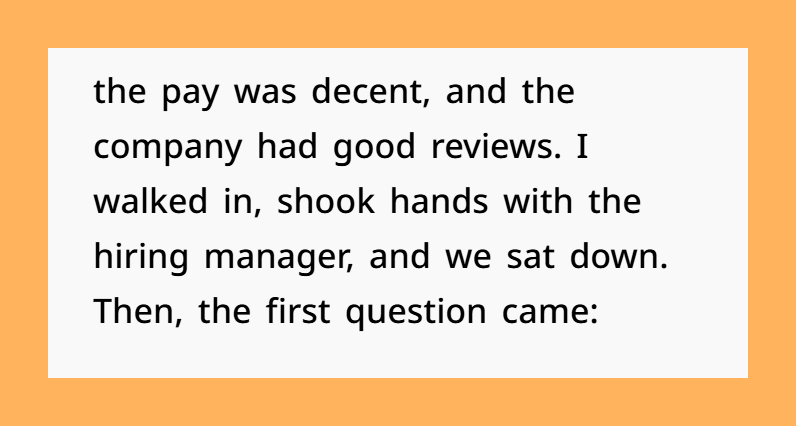
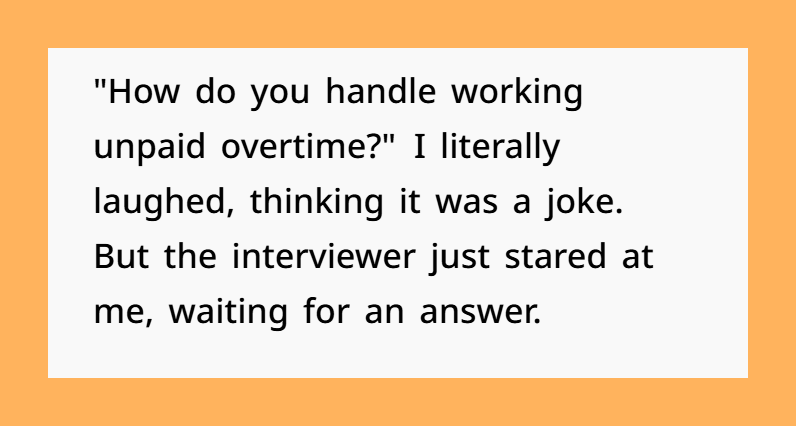
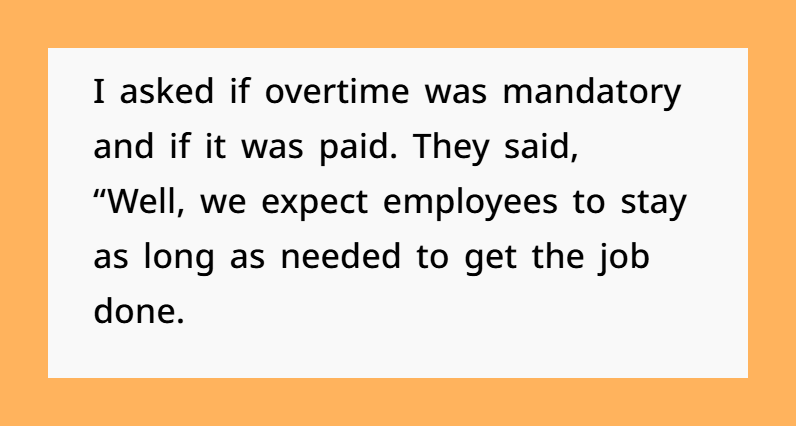
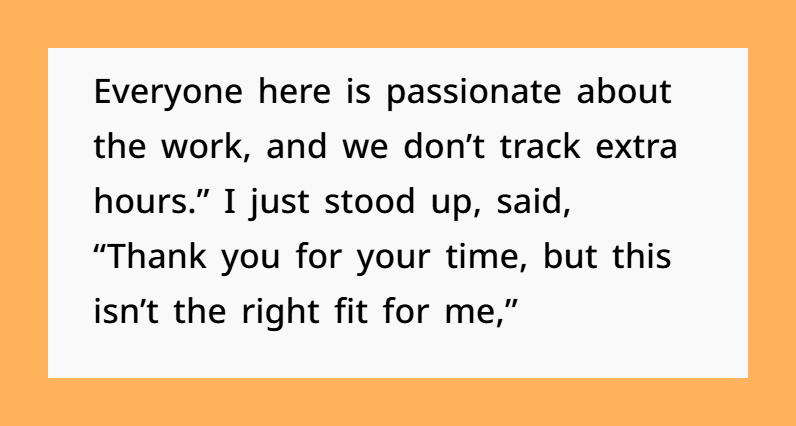
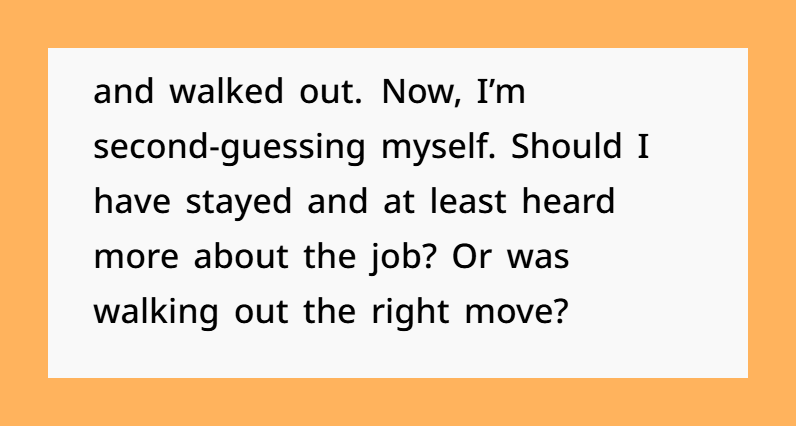
The question OP faced—about unpaid overtime—is more than just a red flag; it’s a potential legal gray zone, depending on location. In the U.S., for example, the Fair Labor Standards Act (FLSA) mandates that non-exempt employees be paid at least minimum wage and overtime (1.5x regular pay) for hours worked beyond 40 in a week. Employers that expect “unpaid overtime” without proper exemption classification may be in violation of labor laws. However, many companies try to skirt this by classifying roles as “exempt” under vague definitions like “professional” or “administrative” duties—even when job duties don’t meet the criteria.
There are several publicized cases and class-action lawsuits where companies were held liable for violating overtime regulations. For instance, in Pippins v. KPMG LLP (2012), entry-level auditors classified as exempt fought for overtime pay, and courts began drawing firmer lines around what constitutes exempt status. Similarly, tech companies have faced backlash for exploiting the “startup culture” mentality to push unpaid overtime as a sign of dedication.
Culturally, we’re also seeing shifts. Gen Z and Millennial workers are pushing back against hustle culture, demanding better work-life boundaries, and rejecting vague concepts like “going above and beyond” when it means sacrificing personal time without compensation. Walking out of an interview after a clear misalignment of values isn’t just assertive—it’s a declaration of self-worth in a labor market that often relies on employee self-sacrifice.
Most commenters just said the applicant was right since such corporate practice is completely inappropriate
The Original Poster (OP) has been actively searching for new employment opportunities, with several of their recent posts focused on job interviews and open positions. So when they received an invitation for an interview at a company offering an attractive position with a highly competitive salary, they were understandably excited. Everything—from the job description to company reviews—seemed promising at first glance.
However, the interview took an unexpected turn right from the beginning. The very first question posed to the candidate was: “How do you handle working unpaid overtime?” Thinking it was a poorly-timed joke, OP sought clarification. Unfortunately, the hiring manager confirmed it was very much a company expectation. According to them, unpaid overtime was simply part of the company culture—employees were expected to stay until all tasks were completed, regardless of how long it took. Worse still, the company didn’t even track extra hours worked.
Faced with what was clearly a red flag and a potential violation of employee rights and unpaid overtime laws, OP chose to walk out. They politely thanked the interviewer and left, realizing the company’s stance on work-life balance clashed with their own values. Now, however, they’re questioning that decision. Did they make a mistake by walking away from a high-paying role? Or was this a smart move to avoid a toxic work culture?
